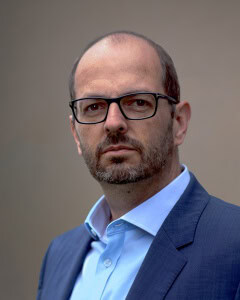
Google files patent for cancer combating wearable
pharmafile | March 23, 2015 | News story | Medical Communications, Sales and Marketing | Cancer, Nanoparticle Phoresis, google, google x, nano, oncology, wearable, wipo
Google has filed a patent application for a new cancer-fighting wearable device which it says targets the cells in the blood that contribute to causes of the disease.
The US search giant is working with the World Intellectual Property Organization (WIPO) to develop the Nanoparticle Phoresis device, which is hoped can transform or terminate enzymes, hormones, proteins or cells in the blood that have an adverse health effect on people.
Google is seeking to gain a license for application to develop the piece of kit from its semi-secret Google X research lab in California. Part of that submission application reads: “The wearable device may be configured to measure one or more physiological parameters of the wearer that may relate to the health of the person wearing the device.
“For example, the wearable device could include sensors for measuring blood pressure, pulse rate, skin temperature, or any other parameters.”
The gadget works by transmitting energy such as a radio frequency pulse or an infrared or visible light signal into the blood vessels.
Google has already invested money and research into oncology last year, when the firm revealed a pill designed in an effort to identify cancers, imminent heart attacks, and other diseases. Its Nanoparticle Platform pill is being developed in the same research lab where driverless cars, the Google Glass device, and glucose-monitoring contact lenses have already been created.
Just like the new cancer-combating wearable the pill uses nanoparticles that combine a magnetic material with antibodies or proteins that can attach to and detect other molecules inside the body. The device creates a magnetic field which can draw these particles to it before calculating its results.
“The wearable device that reads these particles could also be configured to send information via the internet and back to a doctor,” according to Andrew Conrad, who is the head of life sciences at Google X and whom filed the patent.
Both projects are part of a wider effort for Google to develop new technologies capable of improving healthcare. According to researchers at the company it is at least five years away from a product approved for use by doctors.
Tom Robinson
Related Content

Rethinking oncology trial endpoints with generalised pairwise comparisons
For decades, oncology trials have been anchored to a familiar set of endpoints. Overall survival …

Pharma&’s ovarian cancer therapy approved for use by NHS Scotland
Pharma& has announced that its treatment for ovarian cancer, Rubraca (rucaparib), has been accepted by …

Bio-Rad signs exclusive European distribution deal with Gencurix for oncology testing kits
The agreement expands access to oncology testing kits across Europe






